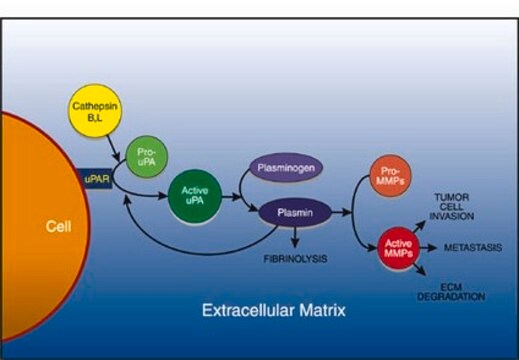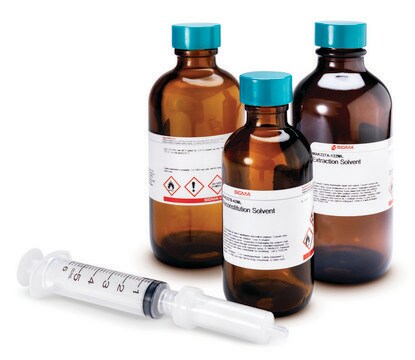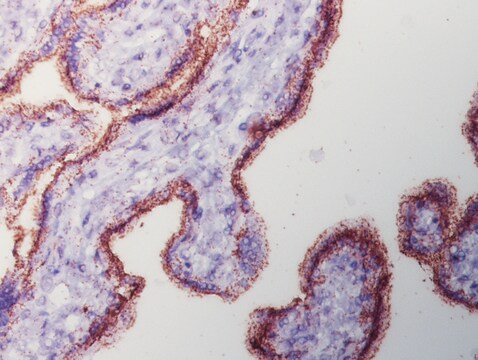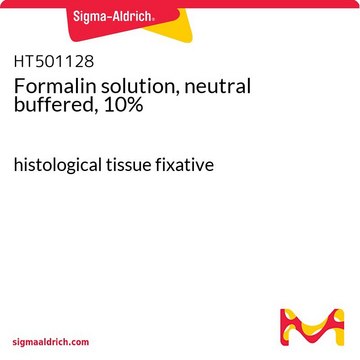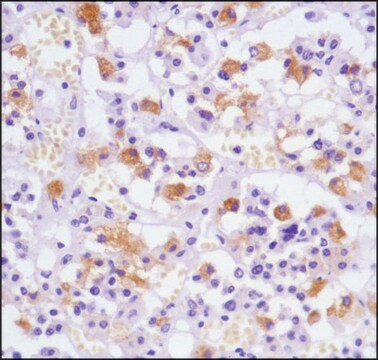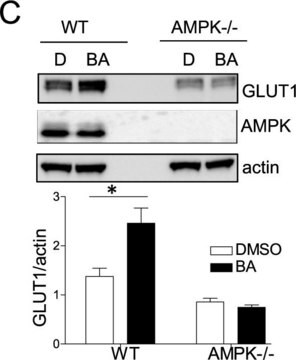MAK226
Enrofloxacin Extraction Kit
Sufficient for 40 extractions
About This Item
Productos recomendados
características de los productos alternativos más sostenibles
Waste Prevention
Learn more about the Principles of Green Chemistry.
sustainability
Greener Alternative Product
aplicaciones
cosmetics
food and beverages
sample preservation
categoría alternativa más sostenible
temp. de almacenamiento
room temp
Descripción general
We are committed to bringing you Greener Alternative Products, which adhere to one or more of The 12 Principles of Greener Chemistry. This product reduces solvent waste over traditional methods. Find details here.
Aplicación
Click on the following link for a video demonstration of how the kit works
Características y beneficios
Idoneidad
Principio
Enrofloxacin is typically extracted using a single solvent system containing 80% methanol in buffer. In the standard procedure, methanol containing the enrofloxacin is separated from tissue by centrifugation for 10 minutes followed by manual pipetting. The extract is then dried and reconstituted into 1 mL of 8% methanol in sample dilution buffer. The extract is subsequently defatted by adding 1 mL hexane and centrifuging. A 50 μL aliquot is taken from the bottom layer containing the defatted enrofloxacin extract and used for analysis by ELISA and spectrophotometry.
The Enrofloxacin Extraction Kit shortcuts the extraction process by eliminating the need for centrifugation, manual pipetting, and post-extraction defatting with hexane or another lipophilic solvent. After adding 80% methanol to the sample, it can be mixed manually for 15 minutes or with sonication for 5 minutes and poured through the syringe containing a filter. The eluted solution containing the enrofloxacin extract is then reconstituted in 8% methanol and a 50 μL aliquot is used for analysis by ELISA and spectrophotometry.
producto comparable
Palabra de señalización
Danger
Frases de peligro
Consejos de prudencia
Clasificaciones de peligro
Acute Tox. 3 Dermal - Acute Tox. 3 Inhalation - Acute Tox. 3 Oral - Flam. Liq. 2 - STOT SE 1
Órganos de actuación
Eyes
Código de clase de almacenamiento
3 - Flammable liquids
Punto de inflamabilidad (°F)
49.5 °F
Punto de inflamabilidad (°C)
9.7 °C
Certificados de análisis (COA)
Busque Certificados de análisis (COA) introduciendo el número de lote del producto. Los números de lote se encuentran en la etiqueta del producto después de las palabras «Lot» o «Batch»
¿Ya tiene este producto?
Encuentre la documentación para los productos que ha comprado recientemente en la Biblioteca de documentos.
Nuestro equipo de científicos tiene experiencia en todas las áreas de investigación: Ciencias de la vida, Ciencia de los materiales, Síntesis química, Cromatografía, Analítica y muchas otras.
Póngase en contacto con el Servicio técnico